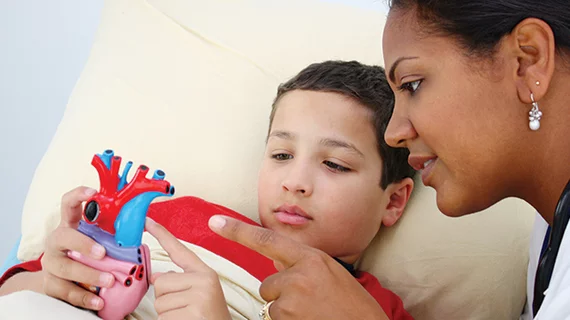AHA, CHF funnel $776K into congenital heart defect research
The American Heart Association and Children’s Heart Foundation are dedicating $776,000 to four upcoming research projects focused on congenital heart defects (CHDs), the AHA announced late this month.
The investment marks the fifth round of funding for the Congenital Heart Defect Research Awards, a program that projects it will donate more than $22 million to CHD studies by the end of 2021. The awards are co-funded by CHF and the AHA.
The first project, spearheaded by Madhumita Basu, PhD, of Nationwide Children’s Hospital, will explore the underlying mechanisms between maternal diabetes or elevated blood sugar and CHD in infants. The second, led by Jesse Davidson, PhD, of the University of Colorado School of Medicine, will focus on improving lung development and blood flow in children with single ventricle defects.
Mehdi Hedjazi Moghari, PhD, of Boston Children’s Hospital will lead a study to examine whether performing “virtual surgery” on an exact model of a patient’s heart could improve CHD-related surgical outcomes, and finally, the University of Pittsburgh’s Xinxiu Xu, PhD, will launch a project to explore causes and treatments of heart failure in patients with hypoplastic left heart syndrome.
“These research projects represent exciting new opportunities to better understand the development of and treatment of congenital heart defects,” Bradley S. Marino, MD, an AHA- and CHF-funded scientist, said in a release. “As we put more resources toward CHD science, we will see fewer children born with CHDs and those that are will be more likely to survive to a healthy adulthood.”
Scientists can submit proposals for future research awards and find deadlines here.

